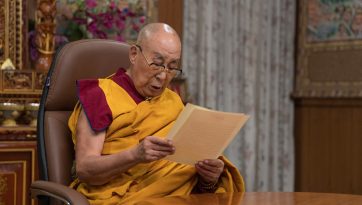US Rebuke China for Perpetrating Severe Violations of Religious Freedom in Tibet
DHARAMSHALA: The United States Commission on International Religious Freedom (USCIRF), an independent and bi-partisan body commissioned by the US government, rebuked China for perpetrating severe violations of religious freedom in its annual report published yesterday and recommended that China be re-designated as “countries of particular concern,” or CPC.
The Chinese government continues to perpetrate particularly severe violations of religious freedom. For Tibetan Buddhists and Uighur Muslims, conditions are worse now than at any time in the past decade, it said.
The report suggested that religious freedom conditions in Tibetan areas remain acute. “Since May 2011, there have been 127 self-immolations, including 61 monks, nuns, and former nuns. In the past year, there were 18 self-immolations, including nine by Buddhist monks. These protests are directly related to Chinese efforts to control religious practice and culture of Tibetans, but Chinese authorities view these expressions of protest as criminal activities,” the report said.
“Authorities detain senior monks for periods after self-immolations by monks associated with their monasteries, and in April 2013, officials in Dzoege, Ngaba Autonomous Prefecture, issued new rules extending criminal penalties to family members, fellow villagers, and monasteries of self-immolators,” it added.
“Since the 2008 and 2009 protests in Tibetan and Uighur areas respectively, the Chinese government has intensified efforts to discredit religious leaders. There are currently hundreds of Tibetans and Uighurs in prison for their religious activity or religious freedom advocacy, including individuals arrested in the past year,” it said.
The over 200-page annual report, the 15th since the Commission’s creation in 1998, documents religious freedom violations in 33 countries and makes country-specific policy recommendations.
“With religious freedom abuses occurring daily around the world against people of all faiths and those without religious faith, the United States must by words and deeds stand in solidarity with the persecuted,” said USCIRF Chairman Robert P. George.
“Religious freedom is a fundamental human right recognized by international law that guarantees to all human beings the freedom to believe or not believe as their conscience leads, and live out their beliefs openly, peacefully, and without fear. Religious freedom also is essential to national and global security. Thus, the defense of religious freedom is both a human rights imperative and a practical necessity and merits a seat at the table with economic, security and other key concerns of U.S. foreign policy.”




